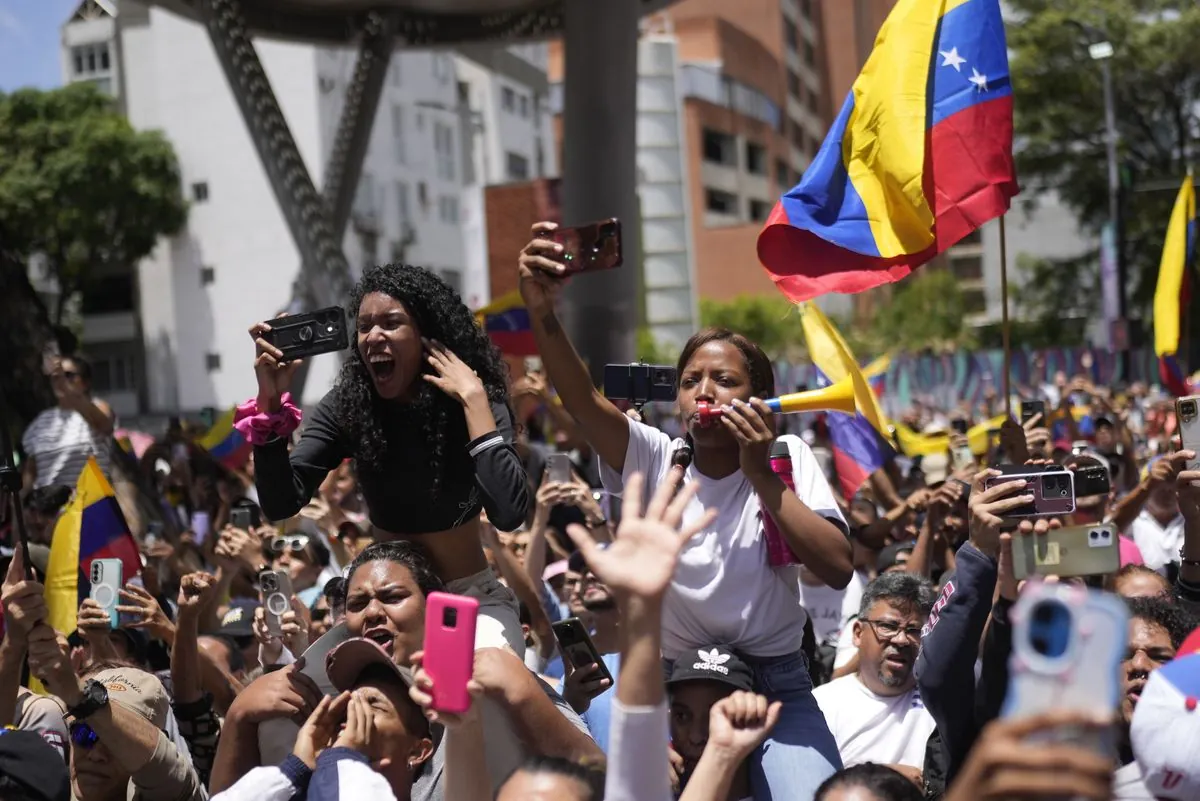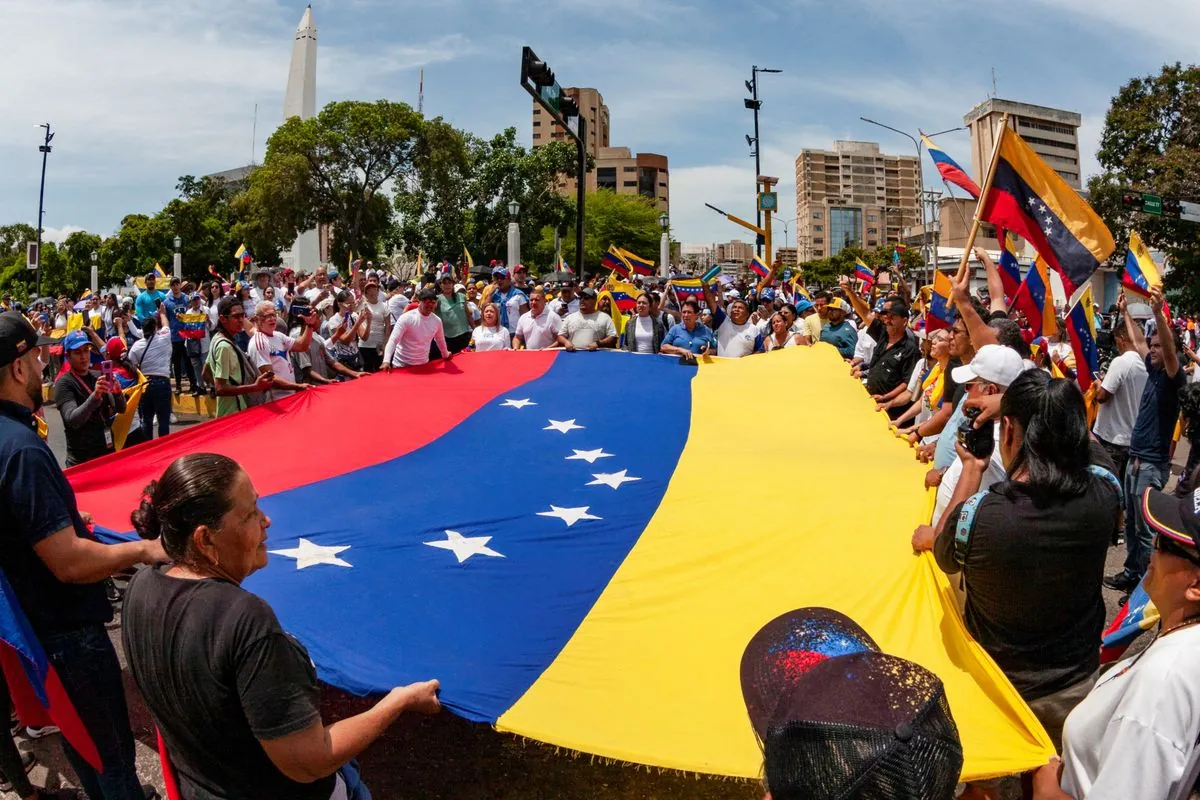Mass Protests Erupt as Venezuelans Demand Recognition of Election Results
Thousands rally in Venezuela and worldwide, challenging Maduro's claim of victory in the July 28 election. Opposition asserts Edmundo González's win amid escalating government repression.

On August 17, 2024, Venezuela witnessed widespread demonstrations as citizens rallied against President Nicolás Maduro's refusal to acknowledge the results of the July 28 election. Protesters in Caracas and across the nation displayed vote tally receipts indicating that opposition candidate Edmundo González secured more than double the votes of Maduro.
The protests extended beyond Venezuela's borders, with Venezuelan communities in numerous countries, including Australia, South Korea, and Madagascar, joining the call for a "free Venezuela." This global day of protest aimed to pressure the government to recognize what opposition leaders describe as a historic electoral victory.

Maduro, who has governed Venezuela for over a decade, has presided over a severe economic crisis and a mass exodus of more than 7 million people. Venezuela, once the wealthiest nation in South America, has experienced a staggering 75% economic contraction since 2014. The country now grapples with hyperinflation, which began in 2016, and severe shortages of essential goods and medicines.
The United States and several other nations have acknowledged González's victory in the July 28 vote. However, Maduro and the electoral council under his control maintain their claim of victory while withholding precinct-level results. In response to demands from global leaders for the publication of vote tallies, the government has intensified its crackdown on the opposition.
"Today the world knows what we Venezuelans are made of … we awakened a country. Now comes a new stage. We have to stand firm and united. They try to scare us, to divide us, to paralyze us, but they cannot."
Machado, who had been in hiding due to the risk of arrest, made a surprise appearance at the Caracas rally, emerging from the crowd to join other opposition leaders.
The government's repressive measures have resulted in over 2,400 arrests since the election, with at least two dozen fatalities reported in and around protests. Additionally, state agents have clamped down on the use of social media platforms such as WhatsApp and X, crucial for communication among Venezuelans.
Despite the risks, protesters in Caracas chanted, "We are not afraid!" The streets of the capital were heavily guarded by an unusually large police and military presence, raising concerns about potential undercover state agents in the crowds.
Venezuela's ongoing crisis has led to the collapse of its healthcare system, resulting in the resurgence of previously eradicated diseases. The country also faces frequent power outages and infrastructure failures, further exacerbating the challenges faced by its citizens.
Maduro's regime faces an investigation by the International Criminal Court for allegations of torture and extrajudicial killings of political opponents. A United Nations fact-finding mission has accused Maduro and his inner circle of ordering and coordinating arbitrary detentions, disappearances, and killings that may constitute crimes against humanity.
As Venezuela grapples with one of the world's highest inflation rates and crime rates, the opposition continues to push for recognition of the election results and a peaceful transition of power. The ongoing protests represent a critical moment in the nation's struggle for democracy and economic stability.


































